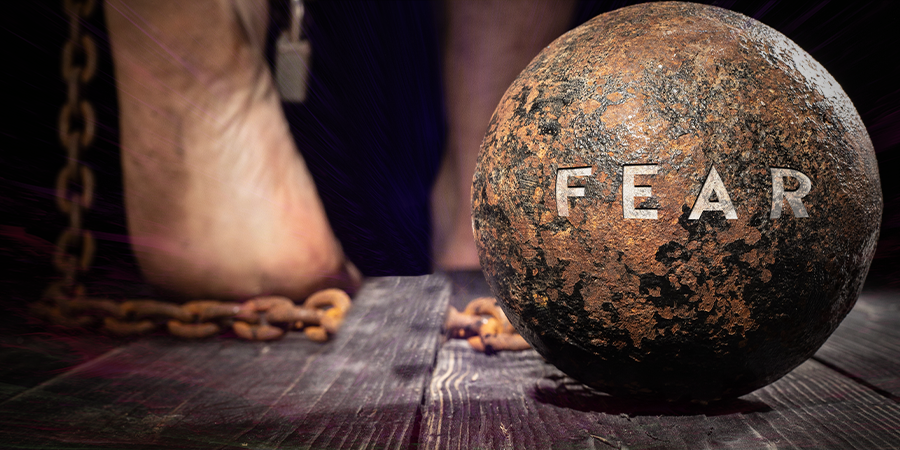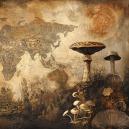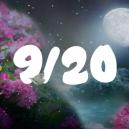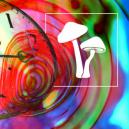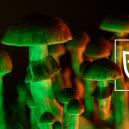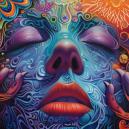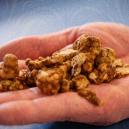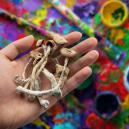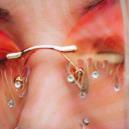Why You Shouldn’t Be Afraid Of A Bad Trip On Magic Mushrooms
Published : March 1st, 2021

It's a story that's been told time and time again—person takes psychedelics, person has a bad experience, person blames psychedelics. However, none of these accounts consider an individual's situation beforehand, how they felt at the time, and most importantly, what they could learn from this supposed "bad trip". To find out more, keep reading.
PSYCHEDELICS GET A BAD RAP
Psychedelics have had a bad reputation since the war on drugs became the primary focus of governments worldwide. They assumed that any substance capable of influencing the way we think or feel was inherently dangerous.
While it would be irresponsible to ignore the addictive properties of some synthetic psychedelics, many natural alternatives have been consumed by cultures all over the world for centuries. Rather than viewing magic mushrooms or peyote cactus as a threat, these substances were treated as means of unlocking a deeper level of thinking, and greater spiritual connection. Unfortunately, a term that has worked in favour of the war on drugs is the risk of a “bad trip”—a term used to describe the negative experience an individual can go through when they consume psychedelics.
The reality, however, is that without a deeper understanding of what you are consuming, the root cause of a bad trip is not the substance itself, but a lack of preparation. Moreover, an uncomfortable experience when tripping can actually be used as a learning tool, rather than a situation made to discourage.
WHY YOU SHOULDN’T BE AFRAID OF A BAD TRIP
By fearing or avoiding an experience that might make us uncomfortable, we cannot hope to learn from it. Psychedelics unlock parts of our consciousness that we may never fully understand, but that doesn't mean we shouldn't try. For a simplistic analogy, the profound sense of perspective provided by substances like mushrooms can be compared to learning to ride a bike.
Whether it takes you a day (or week) to master riding a bike, you will fall off (usually repetitively). Just because you hurt or graze yourself doesn't mean the bike is evil, only that you haven't understood how to control it yet. However, with each failed attempt comes a better understanding of how to keep the bike balanced.
The same rule applies to psychedelics: A trip isn't something that should be defined as good or bad; instead, as something we can learn from. Each trip will provide us with something different. The key to changing your perspective on "bad trips" is to learn from an experience you didn't enjoy or expect.
HOW TO LEARN FROM AN UNCOMFORTABLE PSYCHEDELIC EXPERIENCE
• Keep a journal
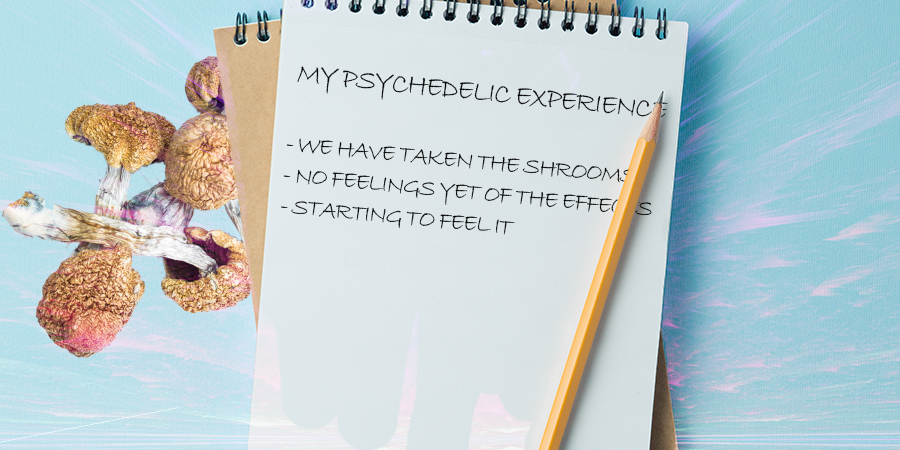
Keeping a journal is the most crucial aspect of any psychedelic experience, and one all psychonauts should adopt. Of course, in the modern age of smartphones and Alexa, that doesn't mean writing in a diary every time you try psychedelics. It could mean keeping some notes on your phone.
You’ll want to take note of what the experience was like. How did it make you feel? How long did the uncomfortable experience last? Did you feel it coming on, or was it all at once? And what did you take (mushrooms, DMT, ayahuasca, etc.)?
• Understanding dosage is crucial
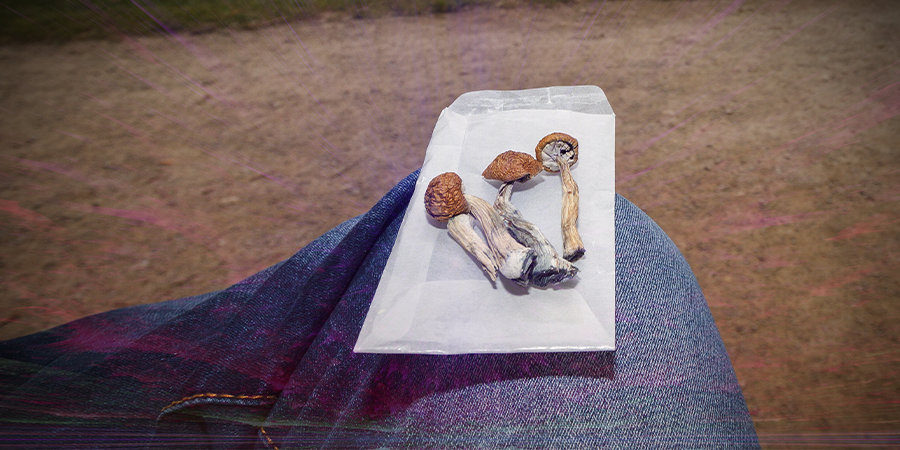
Psychedelics vary widely in their effects and the dose at which these effects take place. Assuming you have established a baseline with a particular psychedelic, it is perfectly natural to start experimenting and increasing the dosage—each time you do, take note.
There will be a tipping point for everyone that pushes the experience past what they can comprehend and enjoy. It may be that in the future you can try a more substantial dose, but again, it comes back to the point above—you need to learn from each experience, and not every trip will be joyful.
• Identify triggers
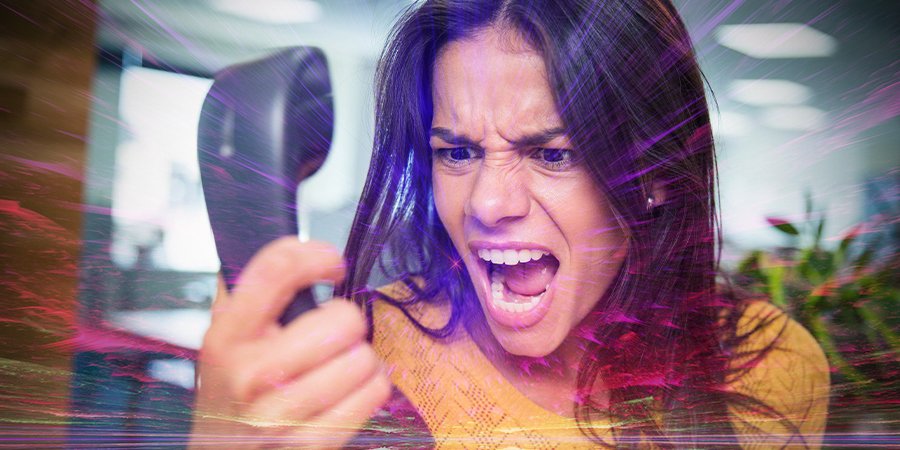
Think back to your experience and try to recall what might have triggered a negative experience. Was it something going on in your life at the time, a song that triggered a memory, or did you leave your work phone on? All of these play a part in a trip, and can easily tip the scale toward some of the unfavourable characteristics attached to bad trips. Many times, identifying a negative trigger will guide you toward an issue that needs tackling sober.
• Keep going!
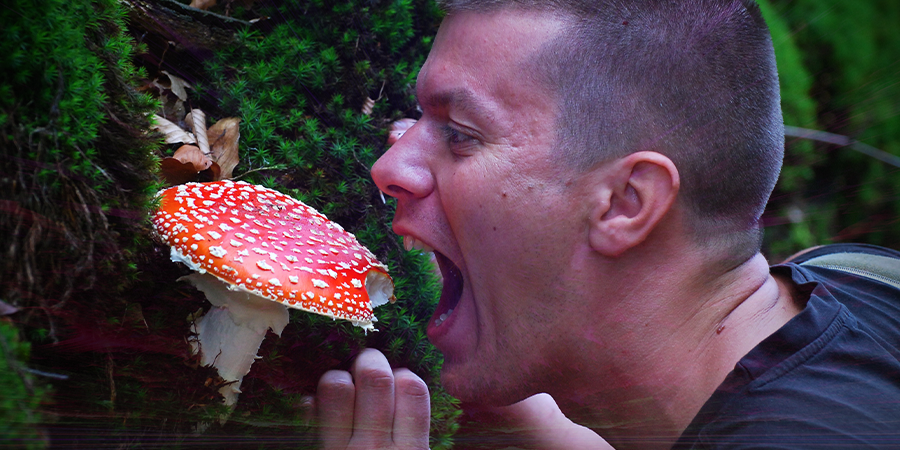
Don't let the negative stereotype attached to psychedelics put you off! They represent an untapped world of spiritual enlightenment that can refresh your perspective on life, put you more at ease with the problems of the world, and reveal more about your inner conscience. While psychedelics may not be for everyone (for multiple reasons), if you do have the option to try them, just remember: A bad trip is merely a term used by those to describe something they don’t understand.

